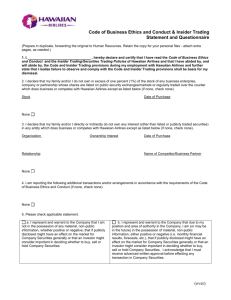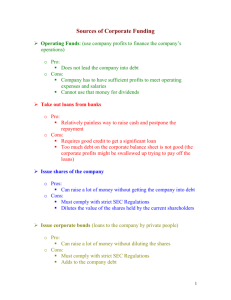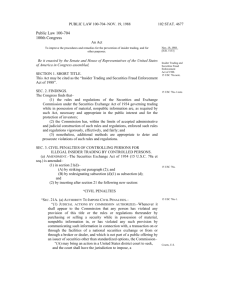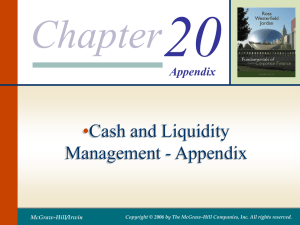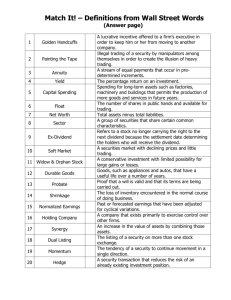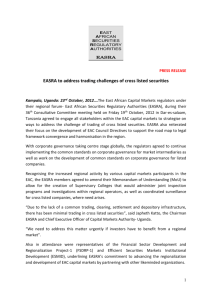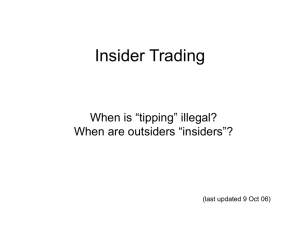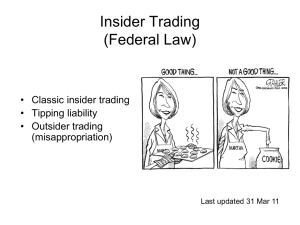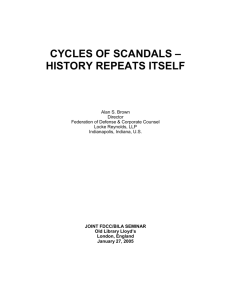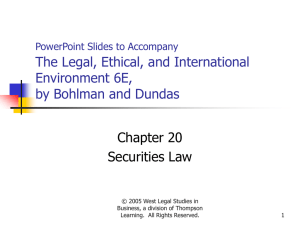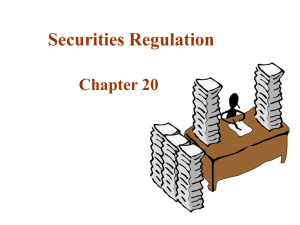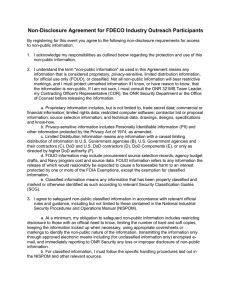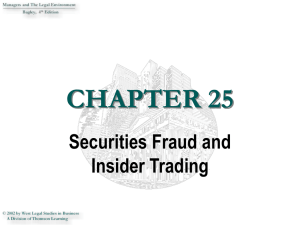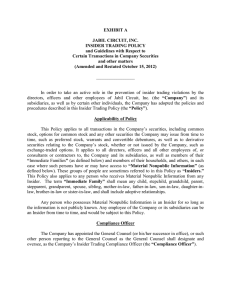CHB Policy on Insider Trading & Confidential Information > Policies
advertisement
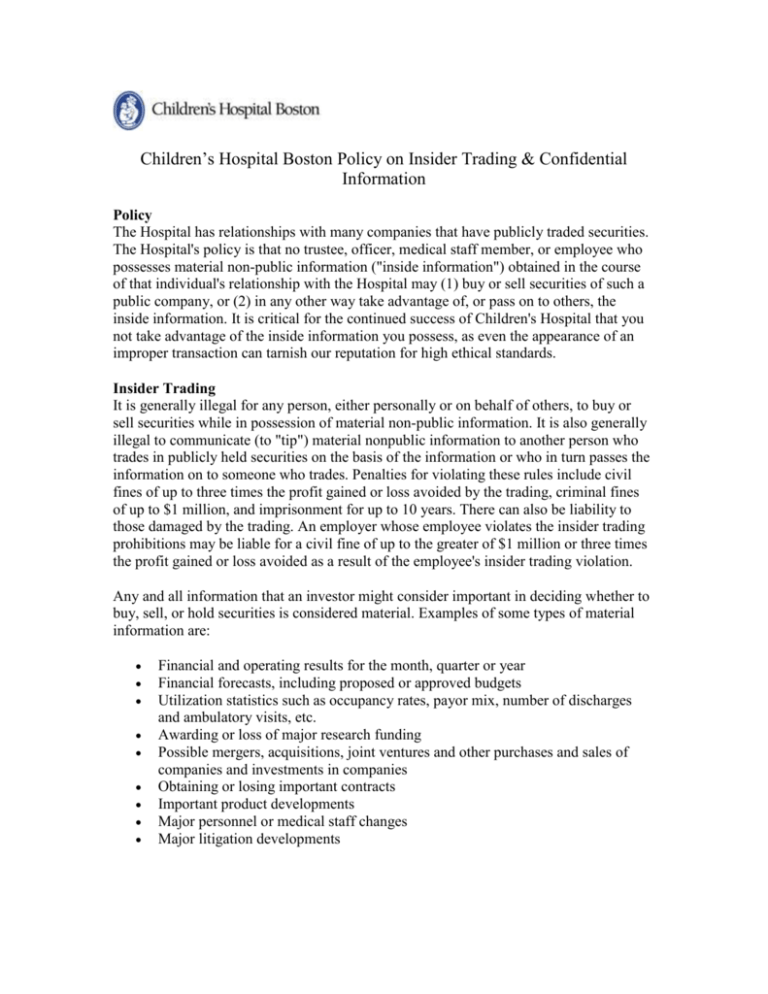
Children’s Hospital Boston Policy on Insider Trading & Confidential Information Policy The Hospital has relationships with many companies that have publicly traded securities. The Hospital's policy is that no trustee, officer, medical staff member, or employee who possesses material non-public information ("inside information") obtained in the course of that individual's relationship with the Hospital may (1) buy or sell securities of such a public company, or (2) in any other way take advantage of, or pass on to others, the inside information. It is critical for the continued success of Children's Hospital that you not take advantage of the inside information you possess, as even the appearance of an improper transaction can tarnish our reputation for high ethical standards. Insider Trading It is generally illegal for any person, either personally or on behalf of others, to buy or sell securities while in possession of material non-public information. It is also generally illegal to communicate (to "tip") material nonpublic information to another person who trades in publicly held securities on the basis of the information or who in turn passes the information on to someone who trades. Penalties for violating these rules include civil fines of up to three times the profit gained or loss avoided by the trading, criminal fines of up to $1 million, and imprisonment for up to 10 years. There can also be liability to those damaged by the trading. An employer whose employee violates the insider trading prohibitions may be liable for a civil fine of up to the greater of $1 million or three times the profit gained or loss avoided as a result of the employee's insider trading violation. Any and all information that an investor might consider important in deciding whether to buy, sell, or hold securities is considered material. Examples of some types of material information are: Financial and operating results for the month, quarter or year Financial forecasts, including proposed or approved budgets Utilization statistics such as occupancy rates, payor mix, number of discharges and ambulatory visits, etc. Awarding or loss of major research funding Possible mergers, acquisitions, joint ventures and other purchases and sales of companies and investments in companies Obtaining or losing important contracts Important product developments Major personnel or medical staff changes Major litigation developments Additionally, information that is likely to affect the price of securities is almost always material. Information is considered to be non-public unless it has been effectively disclosed to the public, for example by a press release. The information must not only be publicly disclosed, but there must also be adequate time for the market as a whole to digest the information. Simply because the information, such as budgets, are discussed widely within the hospital, does not mean that such information is public. When you know material non-public information about the Hospital, you are automatically considered an "insider" and, therefore, you are prohibited from three activities: Trading in the securities for your own account or for the account of another (including any trust of which you are a trustee or any other entity that buys or sells securities, such as a mutual fund) Having anyone else trade for you, and Disclosing the information to anyone else who then trades or in turn Neither you nor anyone acting on your behalf nor anyone who learns the information from you may trade for as long as the information continues to be material and nonpublic. If you are considering buying or selling securities in companies with whom the Hospital does business, and have a question as to whether the transaction might involve the improper use of material non-public information, you should obtain specific prior approval from the President and CEO, the Chief Financial Officer, or the General Counsel. Consultation with your own attorney is also strongly encouraged. Procedures for Protecting Confidential and Material Nonpublic Information One basic rule for all of us to follow is to be aware, when appropriate, that outsiders may be listening to us or watching us and may be able to pick up information they should not have. We should not, for example, discuss the Hospital's affairs in places where we can be overheard by others -- such as corridors, elevators, the cafeteria, restaurants, and on cellular phones -- and we should be careful about how we handle and dispose of sensitive papers. Questions about This Policy Compliance by all personnel with this policy is of the utmost importance to you and to the Hospital. If you have any questions about this Policy generally, or its application to any particular transaction, please contact the General Counsel's office at (617) 355-6108 for additional information. Please remember, however, that the ultimate responsibility for adhering to the Policy and avoiding improper transactions rests with you. In this regard, it is imperative that you use your best judgment. Your failure to observe this Policy could lead to significant legal problems for the Hospital and you, and may have other serious consequences including termination of any hospital affiliation, employment, or removal from the medical staff. March, 2001
